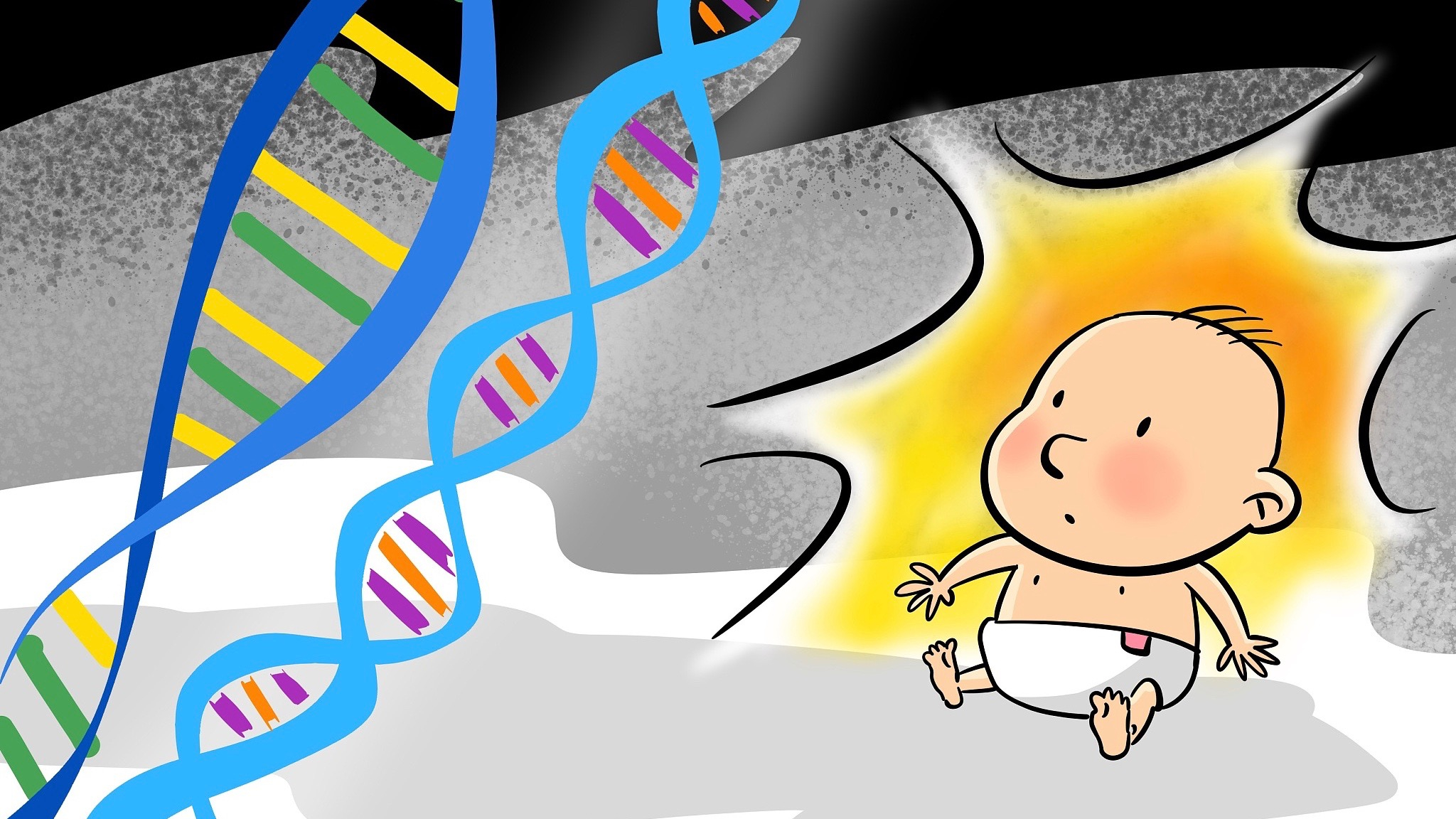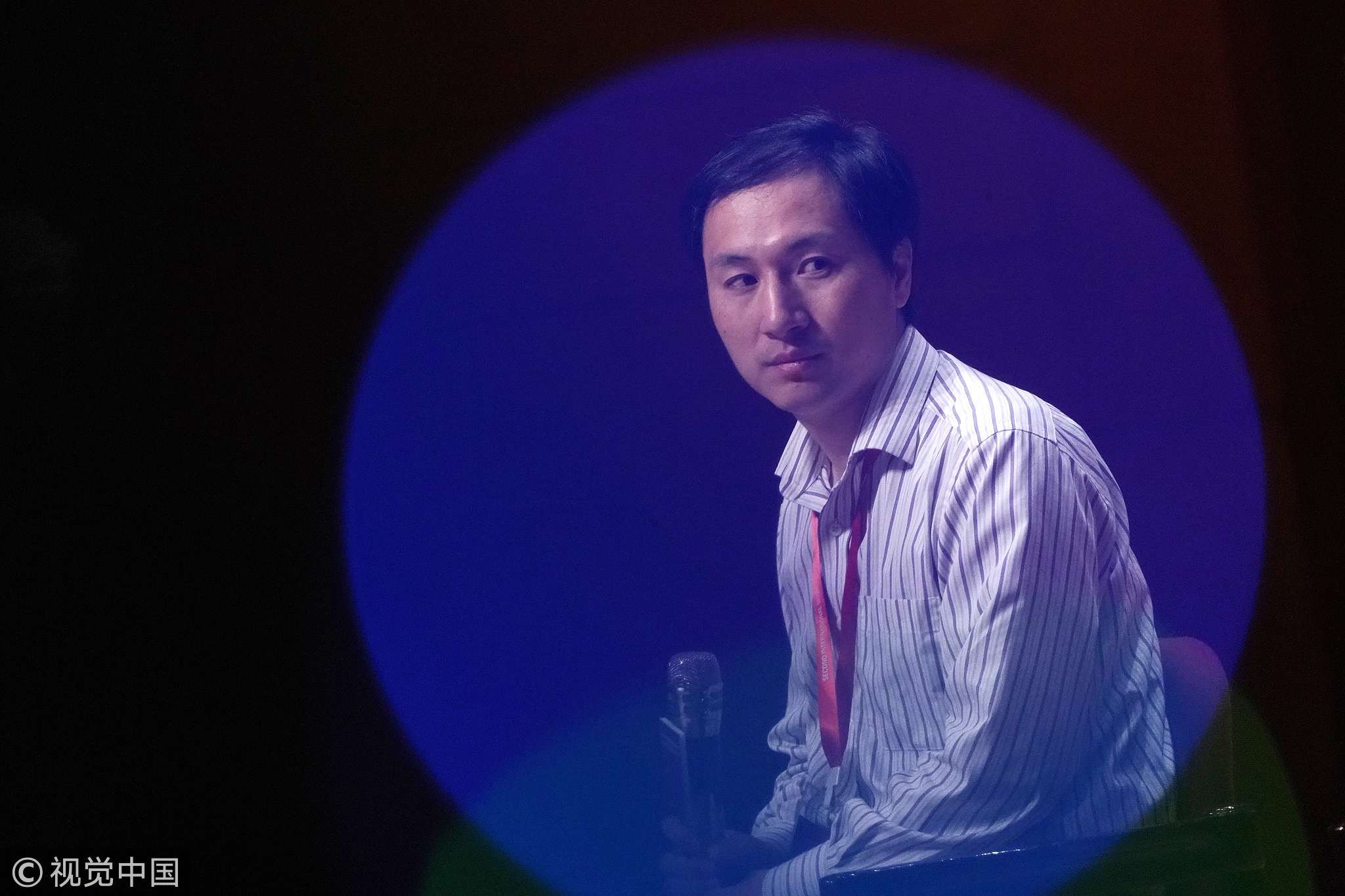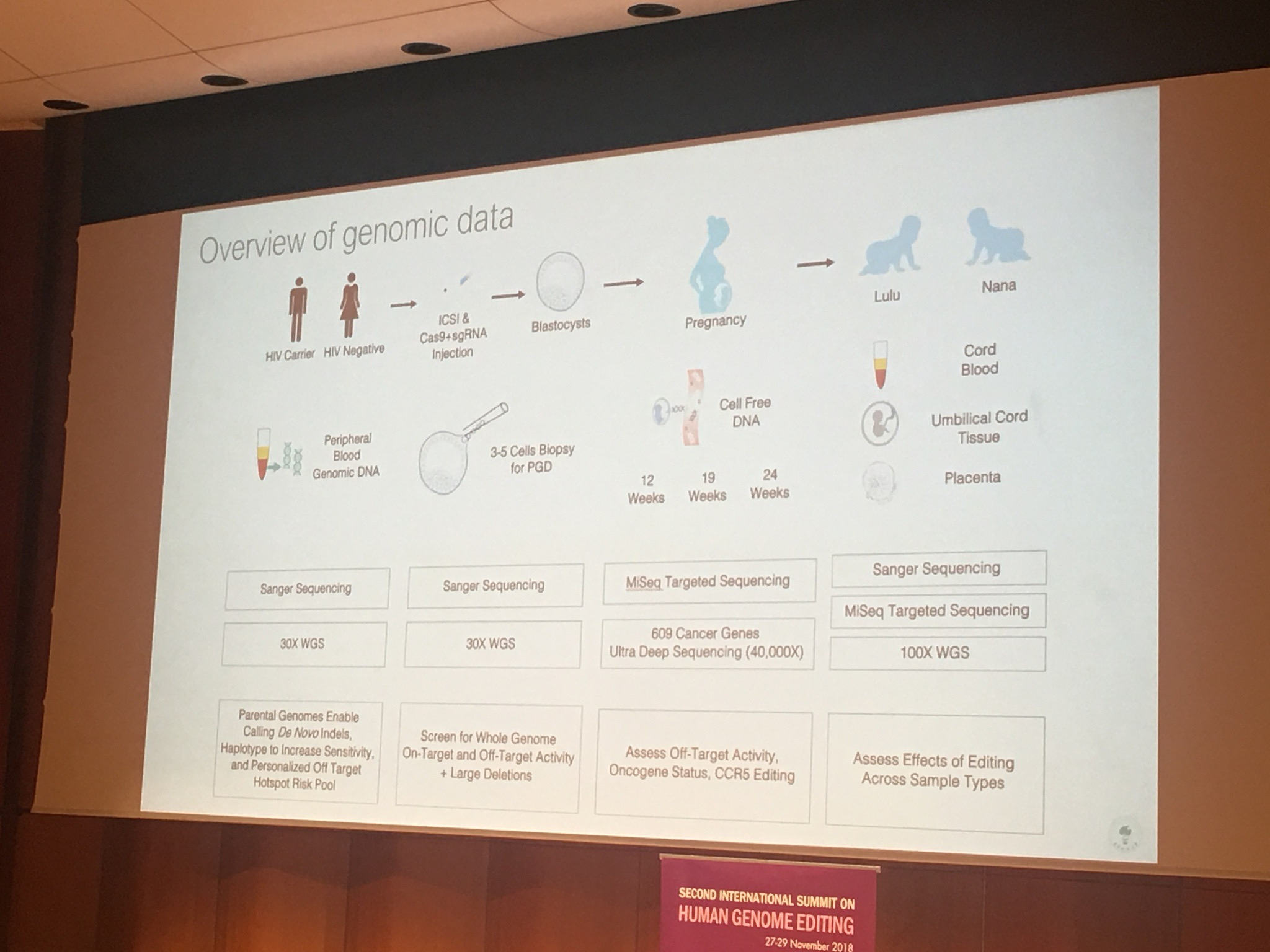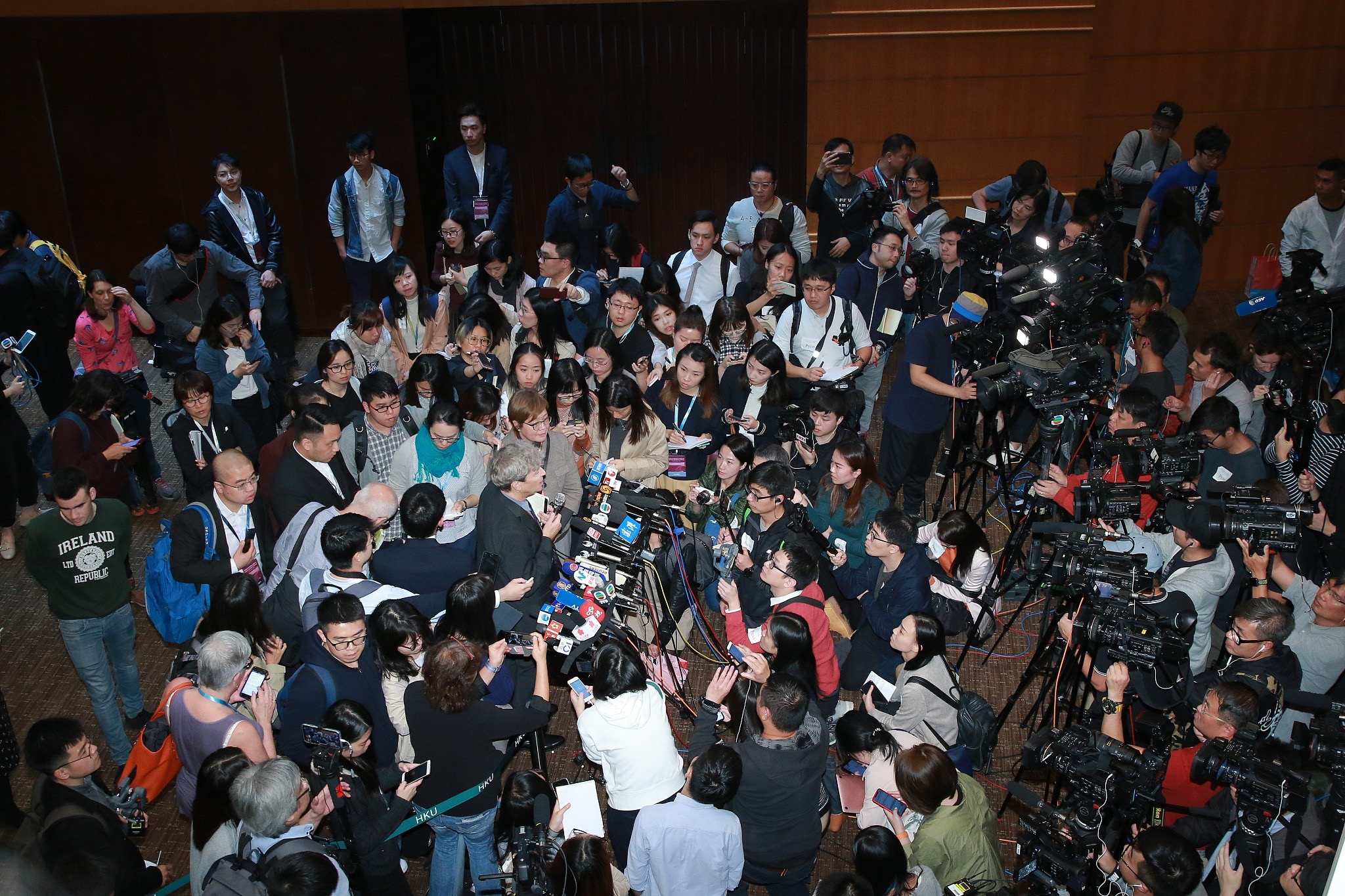
China
17:14, 28-Nov-2018
Human gene editing: Fire of Prometheus, or Box of Pandora?
Updated
16:39, 01-Dec-2018
By Wang Xiaonan

He Jiankui, who's been at the eye of the storm in the global scientific community, appeared at the International Summit on Human Genome Editing in Hong Kong Wednesday. Apart from presenting the statistics for his controversial experiment, He apologized that “this result was leaked unexpectedly” and defended his work for bringing hope to families with deadly inherited diseases. He also said that he has not subjected the research to peer review.
The geneticist made the speech two days after he claimed that he had created the world's first genetically edited babies. His announcement of having the DNA of a pair of twins altered as embryos to prevent them from being infected by the HIV virus has left the world in alarm, shock and furor.
It remains a mystery whether the results can stand up to rigorous scrutiny, whether the trial got ethical approval and whether the babies can indeed resist HIV their entire lives. Health authorities are investigating the case and may offer some answers in a few days. But whether the girls are resistant to all forms of the HIV virus whenever they come into contact with it will probably stay a riddle forever given that infecting them just to validate the scientist's claim amounts to a crime.
Some 140 HIV researchers in China on Tuesday objected to He's trial in a statement, following a letter of condemnation of over 120 Chinese scientists who described the experiment as “crazy” the day before. Research institutions connected to this Rice and Stanford-educated scientist swiftly distanced themselves from him.

Geneticist He Jiankui addresses attendees at the second International Summit on Human Genome Editing in Hong Kong, China, November 28, 2018. /VCG Photo
Geneticist He Jiankui addresses attendees at the second International Summit on Human Genome Editing in Hong Kong, China, November 28, 2018. /VCG Photo
Pandora's Box
“The Pandora's Box has been opened, but we may still have a chance to close it before it is irreparable,” 122 Chinese scientists across the world said in the aforementioned joint statement, adding that He's behavior has dealt a heavy blow to the international reputation of Chinese science.
Many researchers in stem cell science, immunology and medical ethics repudiated the experiment as “monstrous” and “rogue.” For one, the experimentation is deemed unnecessary given China's mature technology to prevent the transmission of HIV from mother-to-child during pregnancy and early infancy. The rate of this type of transmission dropped to 4.9 percent in 2017, down from 7.1 percent five years ago.
On the other hand, the removal of the CCR5 gene using the tool CRISPR-Cas9, which He claims he used in a video, can indeed help immunize humans from AIDS, smallpox and cholera, but it likely makes the body more susceptible to other viruses and illnesses, such as cancer and cardiovascular diseases. CRISPR-Cas9 allows scientists to insert, deactivate, or replace a strand of DNA, but it has loopholes. Moreover, DNA changes will be bequeathed to future generations, resulting in unpredictable consequences in the human gene pool.
This has drummed up fear of eugenics and changes to the social fabric. If the technique is permitted on babies, many are concerned that the wealthy will spend money on creating healthy, beautiful and smart “designer babies” while the poor remain impoverished without competitive offspring. In this way, the technology will become a tool for maintaining class divisions. It could even change the human race, leading to a disastrous scenario that Stephen Hawking once foresaw -- “there will be a race of self-designing beings who are improving at an ever-increasing rate.”

He Jiankui presents data of his controversial experiment at the second International Summit on Human Genome Editing in Hong Kong, China, November 28, 2018. /VCG Photo
He Jiankui presents data of his controversial experiment at the second International Summit on Human Genome Editing in Hong Kong, China, November 28, 2018. /VCG Photo
The fire of Prometheus
Not all scientists oppose He's experimentation. George Church, a famed geneticist at Harvard University, told The Associated Press, “I think this is justifiable” as HIV is "a major and growing public health threat."
He said he would not use CRISPR-Cas9 to change people's skin color, eye color, memory or intelligence, except to treat diseases. Some netizens support him, claiming that human gene editing is just a technology like organ transplantation and it is scientists that have been motivating human progress.
“Editing the genes of your children to not have a horrible hereditary virus is common sense and any normal parent would do that without even blinking,” a comment reads.
According to the findings of a Pew Research Center survey conducted from April to May 2018, 72 percent of Americans thought “changing an unborn baby's genetic characteristics to treat a serious disease or condition that the baby would have at birth is an appropriate use of medical technology,” while around 80 percent said it would be taking the technology too far if used to make a baby more intelligent.
So is gene editing merely the latest tool in our journey to influence our environment, or something else entirely? Dilemmas that were once controversial such as artificial insemination, IVF (in vitro fertilization), cloning, and surrogacy have all been gradually accepted by the scientific community.
In February 2017, the U.S.' National Academy of Sciences even gave a cautious thumbs-up to genome editing of embryos in order to prevent serious disease, under narrow circumstances.

Journalists flood the conference site of second International Summit on Human Genome Editing in Hong Kong, China, November 28, 2018. /VCG Photo
Journalists flood the conference site of second International Summit on Human Genome Editing in Hong Kong, China, November 28, 2018. /VCG Photo
Human, Nature, Science
Since the discovery of the DNA structure in the 1950s, our understanding of what makes us human was fundamentally changed. The blueprint of life was laid bare before us, but it would take decades of scientific progress to learn how to manipulate this biological code. Though public imagination ran wild at the possibilities of creating Frankenstein's monster or even super humans, public awareness of the actual science behind genes and their expression in the human body lagged far behind. Meanwhile, fear of altering humans and their unforeseen consequences loomed large.
Humankind has tried to control nature at least since the beginning of agriculture, taming and breeding plants and animals to our liking. From domesticating the modern pig in China to cultivating the seedless yellow banana that we all know and love, homo sapiens have bent the natural order to their will. However, the ability to edit genes has presented us with a new conundrum, because the precision with which we alter our very selves – and even our identities – can start when we are unicellular.
So as the debate and the investigations rage on, we must ask ourselves: Is life written by science, or by us?

SITEMAP
Copyright © 2018 CGTN. Beijing ICP prepared NO.16065310-3
Copyright © 2018 CGTN. Beijing ICP prepared NO.16065310-3